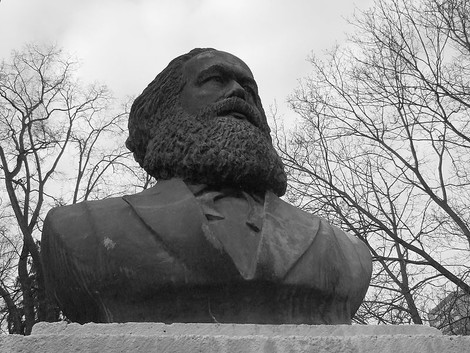Your podcast discovery platform
Curious minds select the most fascinating podcasts from around the world. Discover hand-piqd audio recommendations on your favorite topics.

piqer for: Boom and bust Globalization and politics Global finds
Associate Professor of Economics at George Mason University and currently a National Fellow at the Hoover Institution, Stanford. Educated at Oxford, Mark's main interests lie in economic history and comparative development. He is currently writing a book (with Noel Johnson) on the origins of religious freedom in western Europe. He has also published papers on state formation in Europe and China, weather shocks and pogroms in the middle ages, and private policing in 19th century England. More details about his research can be found on his webpage. He also blogs at Medium and Notes on Liberty.
Marx At 200
There have been countless articles on Karl Marx on the 200th anniversary of his birth in Trier in 1818. Those on the left have celebrated his critical acumen, insights into capitalism, and lauded his contemporary relevance while skirting around the fact that every attempt to implement Marxism in practice has proven disastrous. Those on the right have pointed out the tremendous human cost of Marxism in the 20th century. But both often struggle to convey why Marx was such an influential thinker.
This piece by Jeremy Mayer strikes an interesting balance. On the one hand, it explains why Marx was intellectual dynamite in the second part of the 19th century. In the 1850s, he was perhaps the only person in the world who had mastered Hegelian philosophy, British classical economics, and French political history and socialist thought. His genius was (together with Engels) to synthesize these disparate strands of thought. He, moreover, espoused a romantic Rousseauian vision about restoring humankind to its natural state, a vision that continues to resonate with the young and idealistic.
On the other hand, the coherence of Marx's thought is often exaggerated. There were inconsistencies and lacuna from the start. Marx's central prediction that capitalism would immiserate the working classes was falsified even as he wrote Das Kapital. His labor theory value was incoherent. His missed the importance of religion and of nationalism.
Finally, Mayer points out how Marx lost faith in liberalism and democracy early in his career. Thus, he concludes that while Marx cannot be held directly responsible for crimes committed many decades after his death:
"this is far too thin a leaf to cover Marx’s intrinsic culpability for the dead that litter the land wherever his followers have risen to power."
Mayer concludes that Marx's scathing critique of liberal democracy and support for violent revolution "left a loaded gun of authoritarianism lying around for anyone to pick up".
Stay up to date – with a newsletter from your channel on Boom and bust.
